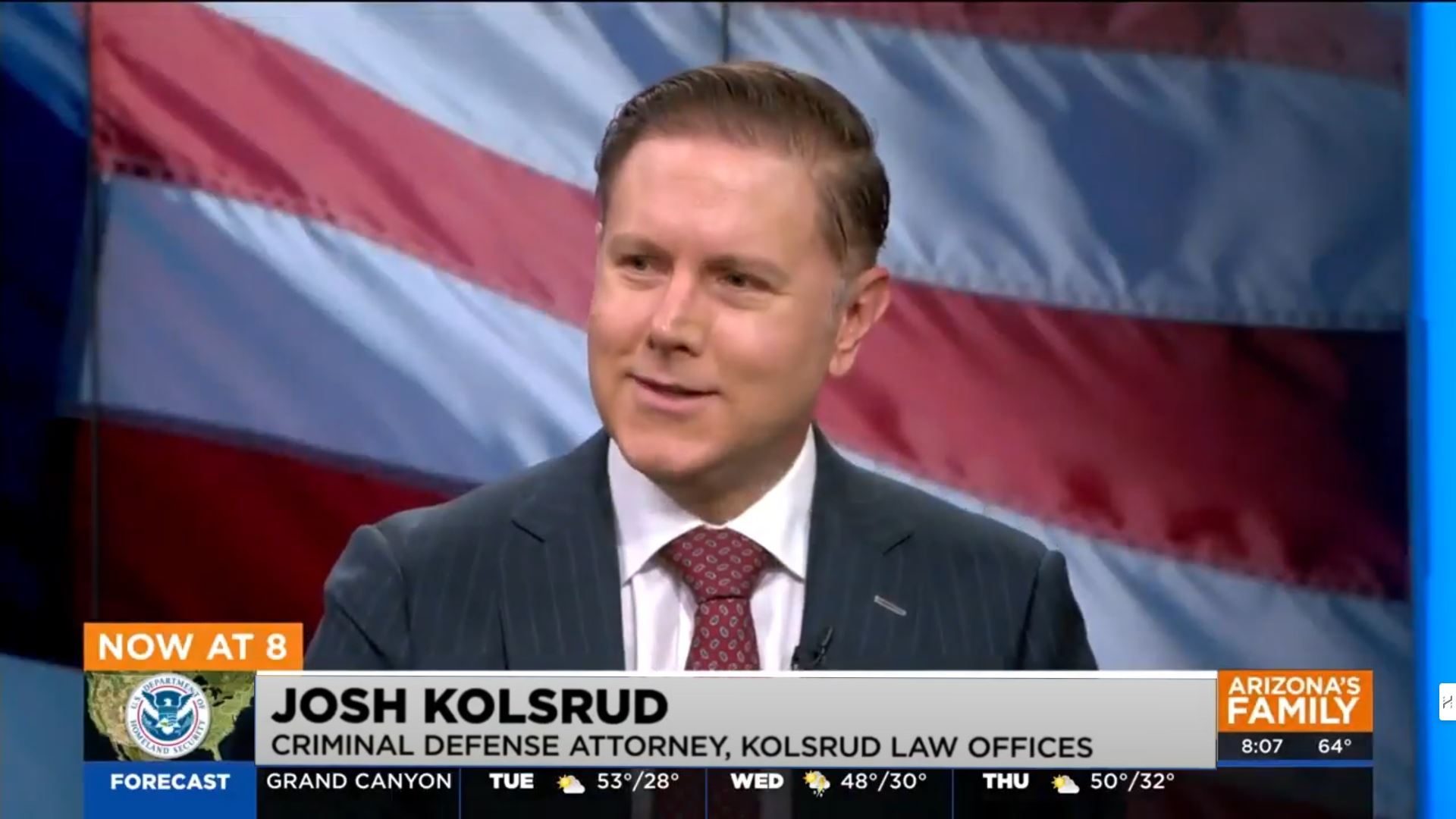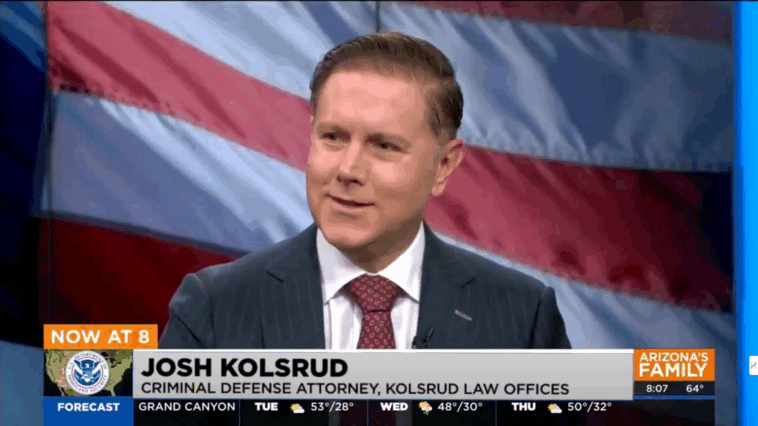
A Closer Look at College Student Deportations: Balancing Free Speech and Immigration Law
The debate over the deportation of college student activists has become a hot topic in a country where freedom of speech is championed as a cornerstone of democratic values. Recently, defense attorney Josh Kolsrud shed light on how student protests and immigration statuses collide, raising questions about the legal process behind these deportation proceedings. In this opinion editorial, we take a closer look at the tangled issues, tricky parts, and subtle details that define the legal landscape for international students engaged in political activism.
While individual cases vary, the central theme remains consistent: college students are exercising their right to free speech, but the intricate visa system and its restrictions can lead to a removal process that is both confusing and intimidating. In what follows, we will dig into multiple aspects of these legal proceedings—from visa revocation to the detailed application of federal law—and offer a balanced examination of how these issues affect student rights.
The Legal Process Behind Deportation Proceedings
At the core of the issue lies the recognition that international students, much like any other resident, have the constitutional right to political expression. However, the student visa is a non-immigrant status and, by its very nature, is subject to revocation by the State Department. When this happens, students enter a removal process that is loaded with problems and nerve-racking twists and turns.
In a recent interview, attorney Kolsrud explained that while the First Amendment provides robust protections in the context of political speech, these protections can be compromised if additional behavior raises concerns for national security or leads to intimidation. Particularly, when political activism evolves into conduct perceived to be intimidating—including targeted protests against specific communities—the government may use federal statutes to justify visa revocations and subsequent deportations.
Understanding Visa Revocation and Its Consequences
The difference between a student visa and permanent residency is an essential detail when examining deportation proceedings. A student visa is issued conditionally, meaning that it can be revoked at the State Department’s discretion. As soon as revocation occurs, students are promptly sent into a removal process that is much more formalized and rigorous than the administrative appeals typically available for other civil matters.
Here’s a table that outlines the differences between student visa rights and those associated with permanent residency:
| Aspect | Student Visa | Permanent Residency |
|---|---|---|
| Nature of Status | Conditional and revocable at will | More permanent with extensive due process rights |
| Due Process | Removal process with court involvement after revocation | Regular legal appeals and protections |
| Restrictions | Limited political participation rights under visa regulations | Broader rights afforded by constitutional protections |
| Risk of Deportation | Higher, due to the discretionary nature of the visa | Lower, owing to greater legal safeguards |
This comparison underlines the precarious position of student activists. While discrimination or political targeting can raise constitutional concerns, the inherent design of the visa system means that an international student’s right to protest may be jeopardized by what some see as an excessive governmental reaction to politically charged events.
Applying Federal Law: The Role of 18 USC 241 in Student Activism Cases
One of the most talked-about aspects of recent deportation cases involves the use of a little-known federal statute: 18 USC 241. This law, which concerns “conspiracy against rights,” has historically been used in cases where groups allegedly collude to infringe on an individual’s constitutional rights.
In the context of politically motivated student protests, critics argue that invoking 18 USC 241 could potentially criminalize protected speech when the protest crosses a line into what might be perceived as intimidating behavior. Kolsrud explained that the executive order issued by the previous administration, which referenced this statute, was intended to target cases where protest actions led to an escalation of tensions—especially in situations where demonstrations seemed aimed specifically at marginalized groups.
To break it down, here are some key points about how 18 USC 241 is being applied:
- It targets situations where political protests escalate into behavior that might be seen as coercion or intimidation.
- The statute is used selectively, focusing on demonstrations that extend beyond peaceful protest and potentially endanger the safety of certain groups.
- Even if a visa is revoked, the removal process still involves judicial oversight, ensuring that the application of the statute is subject to a court’s assessment.
While the use of 18 USC 241 has raised alarms among free speech advocates, it is important to note that a visa revocation alone does not equate to immediate deportation. Instead, the removal process incorporates multiple layers of due process and allows for legal challenges, a component that has been crucial for students contesting their deportation on constitutional grounds.
Working Through the Removal Process: Courts and Due Process Protections
Once a student’s visa is revoked, they are forced to work through a removal process that is notably more complex than the initial administrative denial of a visa. Unlike criminal defendants who are provided a right to counsel under traditional legal standards, students facing removal must often fend for themselves or rely on nonprofit organizations for legal support.
Attorney Kolsrud pointed out that many affected students encounter an uneven playing field, primarily because they lack the resources to secure robust legal defenses. This reality underscores the need for heightened awareness and advocacy, particularly in communities where international students are active voices on political issues.
Below is a bullet list summarizing key challenges encountered during the removal process:
- Limited Legal Representation: Unlike criminal cases, there is no guaranteed right to a free attorney for removal proceedings.
- Complex Judicial Process: Students must navigate a judicial system that demands a high level of legal knowledge just to understand their rights.
- Financial Barriers: The lack of funds can hinder an effective legal defense, especially when governmental agencies are well-resourced.
- Restricted Grounds for Appeal: Precedents, such as the 1999 Supreme Court case involving politically motivated removals, limit the scope of appeal even when constitutional rights may have been compromised.
These points vividly illustrate the many confusing bits and nerve-racking twists that students face when their right to remain in the country is threatened. The interplay between immigration law and constitutional rights creates an environment that is as off-putting as it is legally complicated.
Protecting Free Speech in a Politically Tense Environment
Political activism on college campuses often reflects the intense political climate both within and beyond the boundaries of the university. Nonetheless, even in a charged atmosphere, free speech remains a key element of democratic society. A delicate balance must be maintained between safeguarding the constitutional right to protest and managing the legal structures that govern immigration status.
In the opinion of many legal scholars—and as echoed by Kolsrud—the selective use of visa revocations and federal statutes like 18 USC 241 may set dangerous precedents. By focusing on cases that involve overt political activities, the government risks eroding the fundamental rights of international students, a group that has often brought a unique and diverse perspective to campus debates.
To provide a comprehensive picture, consider the following breakdown of the principal arguments in favor of and against the current approach:
| Argument | In Favor of Current Approach | Concerns Raised |
|---|---|---|
| National Security | Ensures that any hint of extremist behavior is swiftly addressed. | May penalize those exercising peaceful political dissent. |
| Visa Status Control | Provides the State Department with flexibility in managing non-immigrant statuses. | Creates a scenario where a visa becomes a fragile, easily revoked status. |
| Due Process Protections | The removal process is conducted in a judicial setting with courtroom oversight. | Resource disparities may hinder a fair legal defense for affected students. |
| Free Speech Preservation | Focused on curbing actions that cross the line from free expression to intimidation. | Risks chilling legitimate protest and free political expression on campuses. |
This table captures the full spectrum of debates that continue to shape the legal environment and public opinion. While safeguarding national security is undeniably important, the compulsory nature of a student visa, with its built-in limitations, leads to complicated pieces of legal policy that require careful reconsideration.
Political Expression, Immigration Law, and the Student Experience
For those enrolled in higher education, particularly international students, the intersection of political expression and immigration law is laden with both opportunities and challenges. College campuses, with their diverse populations and vibrant political debates, serve as crucibles where new ideas are forged and societal norms are questioned. Yet, they are also arenas where legal and immigration statuses can become contentious issues.
Many students, drawn by the promise of an education in a land known for its freedoms, find themselves unexpectedly entangled in a system that can turn their most passionate expressions of belief into legal liabilities. The delicate balance between exercising a constitutional right and maintaining one’s legal status is a nerve-racking journey, one that is filled with scattered fine points and hidden complexities.
Below are some key factors that students have to consider when taking a stand on politically sensitive issues:
- The Scope of Free Speech: While international students enjoy the same constitutional rights as citizens, the temporary nature of their visa status makes their legal position precarious.
- Risk of Retaliatory Actions: Instances where the government revokes visas on suspicion of extremist behavior can have a chilling effect on campus activism.
- Legal and Financial Support: Unlike full-time criminal cases, the removal process often leaves students scrambling to secure proper legal representation and resources.
- Long-term Consequences: A revocation not only affects a student’s educational journey but can also have lasting implications on future immigration benefits.
These factors highlight that while the principle of free speech is super important in a democratic society, the current implementation vis-à-vis immigration law has left many college student activists in a predicament that is as challenging as it is confusing.
Legal Precedents and Their Impact on the Future of Student Activism
The legal landscape for politically active students has been significantly influenced by precedents set in earlier cases. Notably, the 1999 Supreme Court case—often cited as Janet Reno versus the ADC—became a lighting point for the limited judicial review of politically motivated removals. In that decision, the Court stressed that its ability to review claims regarding secured political rights was restricted. This precedent means that even when constitutional rights appear to have been infringed upon, there may be few avenues for redress.
There are several important takeaways from this precedent:
- Judicial Limitations: Courts may be reluctant to overturn visa revocations even if there is evidence of politically motivated bias.
- Lack of a Clear Legal Path: Students may struggle to prove that their constitutional rights were directly violated because the legal path to appeal is hazy.
- Implications for Free Expression: The limited review process may embolden government agencies to focus on politically sensitive cases without fearing rigorous judicial scrutiny.
The loaded legal framework established by such precedents adds an extra layer of anxiety for students who may be engaging in political discussions that challenge prevailing views. Although the right to protest is protected, the means by which that protest is insulated from immigration repercussions often relies on demonstrating a direct infringement of constitutional rights—a standard that is notoriously difficult to prove.
How Advocacy Groups are Helping International Students
In light of the formidable and nerve-racking twists and turns presented by the removal process, a number of nonprofit organizations have stepped in to offer legal assistance and other forms of support. These groups are working to ensure that international students are not left to figure a path through the convoluted judicial maze on their own.
The roles played by advocacy groups can be summarized as follows:
- Providing Free or Low-Cost Legal Representation: Many law clinics and nonprofits bridge the gap by offering legal advice and representation.
- Raising Awareness: These organizations help in educating students about their rights and the potential legal consequences of participating in certain forms of activism.
- Lobbying for Reform: There is a concerted push to initiate legislative and policy changes that would render the visa revocation process fairer and more transparent.
Table below provides an overview of support services typically offered by these advocacy groups:
| Support Service | Description |
|---|---|
| Legal Representation | Access to attorneys experienced in immigration and constitutional law. |
| Educational Workshops | Informative sessions on rights, visa status, and legal processes. |
| Policy Advocacy | Efforts aimed at reforming current policies underpinning student deportations. |
| Crisis Intervention | Immediate assistance and counseling for affected students. |
These resources are super important for ensuring that international students are not isolated during a nerve-racking time. By providing both legal support and a voice in the broader debate about immigration law, these groups help to safeguard the principles of free speech and fair treatment, even when the pathways through the legal system remain full of problems.
Challenges Ahead: Balancing Political Expression and Immigration Enforcement
Looking forward, the interplay between political expression and immigration enforcement is likely to grow increasingly tense. The selective nature of visa revocations—an approach which zeroes in on students who partake in what some view as politically motivated behavior—paints a picture of a legal environment that is as risky as it is unpredictable.
Key challenges that lie ahead include:
- Establishing Clear Legal Standards: There is a pressing need for guidelines that distinguish between acceptable political protest and behaviors that genuinely warrant a visa revocation.
- Ensuring Equitable Access to Legal Support: As the removal process is often costly and confusing, ensuring that affected students get around the legal obstacles is critical.
- Protecting Free Speech: Striking a balance between national security and constitutional rights remains a tiny twist that lawmakers and courts must address with extra care.
- Fostering Public Debate: Open discussions about these issues can help demystify the removal process, reduce anxiety among affected students, and ultimately lead to fairer legal practices.
The current political climate on campuses symbolizes broader tensions nationwide. While activism is one of the hallmarks of progressive change, when government agencies turn their attention to student protests under the guise of national security, it creates a scenario that is as off-putting as it is dangerous for democratic engagement.
A Call for Legislative Reform and Greater Judicial Scrutiny
In order to address these challenging and tangled issues, a confluence of legislative reform and enhanced judicial scrutiny is required. While federal authorities have the legal backing to revoke visas and trigger removal proceedings, it is equally critical that these actions are subject to a robust system of checks and balances.
Legislators and policymakers should consider the following concrete steps to remedy the current situation:
- Clarification of Legal Standards: Establish clear, unambiguous benchmarks that define the limits of acceptable political expression under non-immigrant visas.
- Enhanced Judicial Oversight: Strengthen the role of the courts in reviewing visa revocation decisions to ensure that fundamental constitutional rights are not trampled.
- Support for Legal Advocacy: Increase funding and access to legal services for international students facing removal proceedings.
- Public Policy Debates: Engage in nationwide discussions to reframe the debate on political expression and its intersection with immigration law, ensuring that all voices—especially those of vulnerable student communities—are heard.
Such measures would not only provide a safer legal environment for international students but also reaffirm the democratic ethos that the United States prides itself on. Implementing these reforms would help to steer through the existing bureaucratic maze and make a path for fairer immigration practices that respect the right to free speech.
Conclusion: Striking the Right Balance for College Student Activists
The legal process governing the deportation of college student activists is laden with tricky parts, tangled issues, and nerve-racking twists and turns. Although the right to political expression is firmly anchored in constitutional law, the fragile nature of student visas and the complex removal process can transform innocuous protest into a full-blown legal quagmire.
Attorney Josh Kolsrud’s insights offer a window into a system where immigration enforcement and constitutional protections sometimes find themselves at odds. As students participate in campus protests and engage in politically charged activities, they must contend with a process that can quickly become overwhelming and off-putting. Whether it is the invocation of 18 USC 241 or the subsequent legal battles faced during removal proceedings, the challenges are many and the stakes are high.
Ensuring that international students can express their beliefs without fearing for their future in the country requires a careful reexamination of current legal practices. Policymakers, judicial authorities, and advocacy groups must work hand in hand to figure a path that protects national security without sacrificing the essential right to free speech.
As debates over college student deportations continue to surface in legal circles and on campus lawns, it is clear that this issue is a litmus test for how well the nation balances governmental authority with individual freedoms. The road ahead is undoubtedly full of problems and loaded with challenges, but constructive dialogue and informed legal reforms can help to ease some of the confusing bits, ensuring that every student is afforded a fair shot under the law.
The landscape of political activism and immigration enforcement is evolving, and it is incumbent upon all stakeholders to remain vigilant. With smarter laws, more equitable support systems, and persistent public debate, there is hope that a balanced approach can be forged—one that honors the cherished values of free expression while maintaining the rule of law.
In closing, the discussion around the deportation of college student activists is not solely about immigration status but is emblematic of broader societal questions regarding freedom, fairness, and the role of government. By taking a closer look at the legal process through the lens of practical experience and constitutional rights, we can begin to untangle the maze of legal challenges that student activists face. It is only through sustained effort and open dialogue that the system can evolve to safeguard both national interests and personal liberties.
As we continue to watch these legal and political battles unfold, it is critical for all parties—from lawmakers to legal advocates—to commit to a future where political expression is truly protected, and where international students are supported rather than sidelined by an overly rigid system. The complexity of this issue, replete with its nerve-racking twists and off-putting challenges, calls for a reform that is as thoughtful as it is bold.
Ultimately, the goal should be to ensure that college campuses remain vibrant centers of debate and innovation, without the shadow of unjust deportations looming over any student. Only then can the United States truly claim to be a land where freedom, opportunity, and justice are accessible to all.
Read more about this topic at https://kolsrudlawoffices.com/josh-kolsrud-speaks-student-deportations/
Related articles you might like
What we know about the federal detention of activists …
What to know about Trump’s student deportations and ICE …


